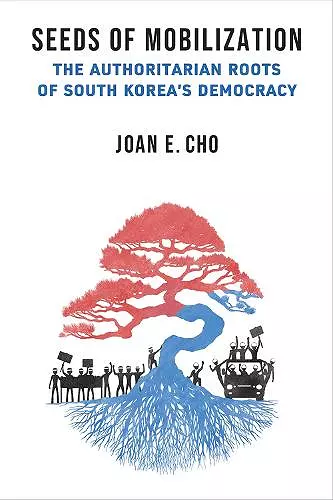Seeds of Mobilization
The Authoritarian Roots of South Korea's Democracy
Format:Hardback
Publisher:The University of Michigan Press
Published:13th Feb '24
Currently unavailable, and unfortunately no date known when it will be back

South Korea is sometimes held as a dream case of modernization theory, a testament to how economic development leads to democracy. Seeds of Mobilization takes a closer look at the history of South Korea to show that Korea’s advance to democracy was not linear. Instead, while Korea’s national economy grew dramatically under the regimes of Park Chung Hee (1961–79) and Chun Doo Hwan (1980–88), the political system first became increasingly authoritarian. Because modernization was founded on industrial complexes and tertiary education, these structures initially helped bolster the authoritarian regimes. In the long run, however, these structures later facilitated the anti-regime protests by various social movement groups—most importantly, workers and students—that ultimately brought democracy to the country.
By using original subnational protest event datasets, government publications, oral interviews, and publications from labor and student movement organizations, Joan E. Cho takes a long view of democratization that incorporates the decades before and after South Korea’s democratic transition. She demonstrates that Korea’s democratization resulted from a combination of factors from below and from above, and that authoritarian development itself was a hidden root cause of democratic development in South Korea. Seeds of Mobilization shows how socioeconomic development did not create a steady pressure toward democracy but acted as a “double-edged sword” that initially stabilized autocratic regimes before destabilizing them over time.
“Joan Cho unpacks the long-term impact of economic development in South Korea on both worker and student organizations, and its consequent impact on democratization. Her nuanced theory on the sociopolitical impact of industrial complexes and labor unions, as well as that of college campuses and student organizations, is a very welcome contribution to the burgeoning literature on democratization, especially on South Korea.”
“In this richly researched and elegantly written book, Joan Cho uses the case of South Korea to make an original and nuanced argument about how the geospatial patterns of industrial and educational policies bolstered authoritarian durability initially but also unintentionally laid the organizational foundations off which social forces mobilized to democratize Korea.”
“Joan Cho revisits the long-standing puzzle of why economic development—over the long-run—is likely to generate democratic outcomes. She shows how this may not initially prove true as the returns from authoritarian-led growth accrue to incumbents. Rather it is the formation of an independent and concentrated civil society—for example workers in firms or students in universities—that bring pressure to bear. While tackling the Korean case, the argument has implications for China and other cases where controls on social organization have slowed democratic pressures that would otherwise arise.”
ISBN: 9780472076604
Dimensions: unknown
Weight: unknown
276 pages